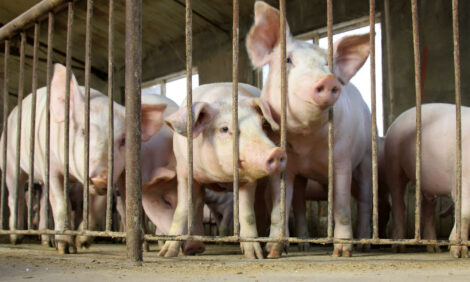



African and Classical Swine Fever in Russia
RUSSIA - The Russian Federal Service for Veterinary and Phytosanitary Surveillance (VPSS) has confirmed the detection of the first case of African swine fever in a family of wild boars, in the Chechen Republic in an area bordering the Republic of Georgia.In a separate incident, a case of classical swine fever was detected in two culled wild boars from a hunting reserve in Lotoshino rayon, Moscow oblast.
According to the USDA Foreign Agricultural Service, the veterinary services of the two provinces are taking appropriate measures to prevent further spread of the infection.
African Swine Fever in the North Caucasus
The Russian Service for Veterinary and Phytosanitary Surveillance (VPSS) confirmed media reports that the case of African swine fever was registered in Russia in a family of wild boars.
The case was registered in the Chechen Republic in an area bordering the Republic of Georgia. A VPSS official advised us that the case was detected during intensive monitoring of the incidence of diseases among wild boars in the North Caucasus after a massive outbreak of African swine fever was reported in neighboring Georgia.
A joint team of the VPSS Veterinary Directorate, Veterinary Service of the Chechen Republic, representatives of the Ministry of Defence, Interior Ministry and Federal Security Service (FSB) have launched measures to prevent emergence of a permanent reservoir of African swine fever in wild fauna in the Chechen Republic.
Classical swine fever in Moscow oblast
The presence of classical swine fever virus was detected by the Institute of Animal Health Protection in samples taken from two wild boars culled at the game farm “Lotoshino Hunting” in Lotoshino region, Moscow oblast.
Quarantine was imposed on the farm, boar hunting was prohibited, and animals were vaccinated with vaccines added to feed. In Lotoshino region and adjacent regions weak wild boars were culled but no infected animals were detected among them.
Swine in private households of Lotoshino region had been routinely vaccinated in September 2007 and these are not considered to be at risk of infection, but nonetheless pig farms in Moscow oblast have introduced additional measures to prevent spread of the infection, the USDA Foreign Agricultural Service said.
Further Reading
|
|
- Find out more information on Classical and African Swine Fever by clicking here. |








